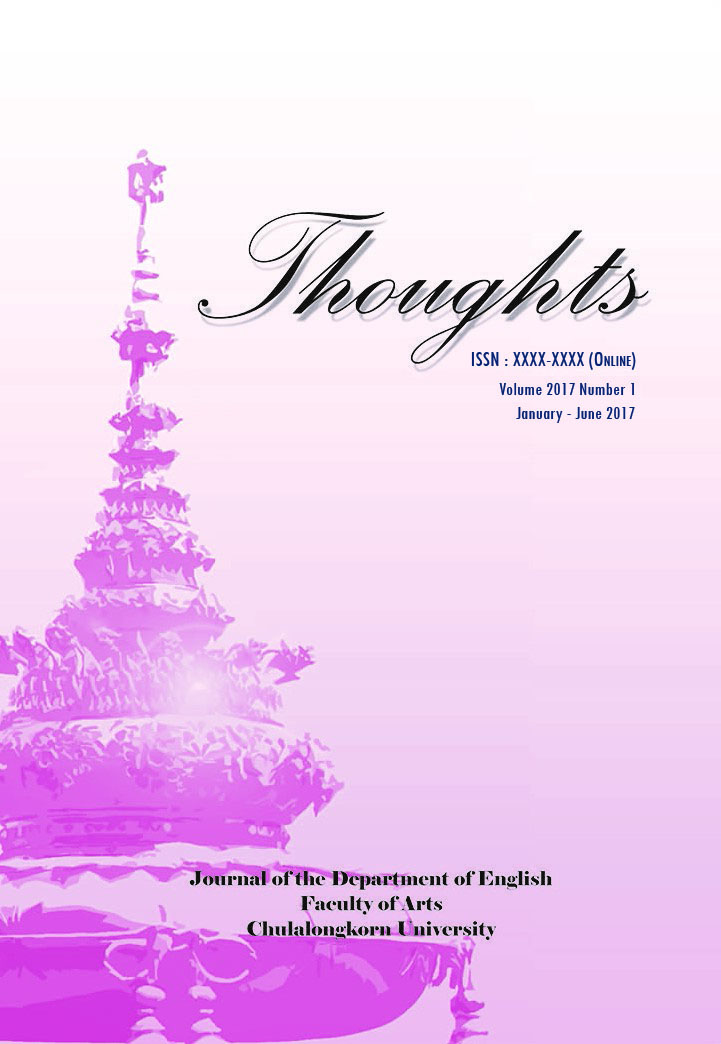Love and Technology of Power: Politics of Information in Caryl Churchill’s Love and Information
Keywords:
drama, epic theatre, technology, information, politicsAbstract
In the contemporary society, digital technology has become a revolutionary force of human progress that transforms people’s way of life. The impact of digital media and globalisation has shrunk the world and connected people across the globe together. However, the compressed world where exchange of information is unbelievably fast is not as free as commonly perceived. Although digital network brings people together in virtual communities, oppressive structure of the society still remains intact. This paper examines dramatic techniques in Caryl Churchill’s latest play Love and Information (2012) through the lens of Marxist and poststructuralist theories. In this paper, I argue that Churchill appropriates Bertolt Brecht’s dramatic elements of epic theatre as a tool to criticise a social condition of the digital culture. The play’s distancing effects do not only expose the arbitrariness of social structure, but also gives voices to the marginalised and urge the audience to see their present condition more critically.Downloads
Published
2017-01-01
Issue
Section
Articles
License
Copyright by the Faculty of Arts, Chulalongkorn University.
Photocopying is allowed for internal, non-commercial use only. Photocopying for other uses or for purposes other than indicated must be permitted in writing from the Faculty of Arts, Chulalongkorn University.
All views or conclusion are those of the authors of the articles and not necessarily those of the publisher or the editorial staff.


